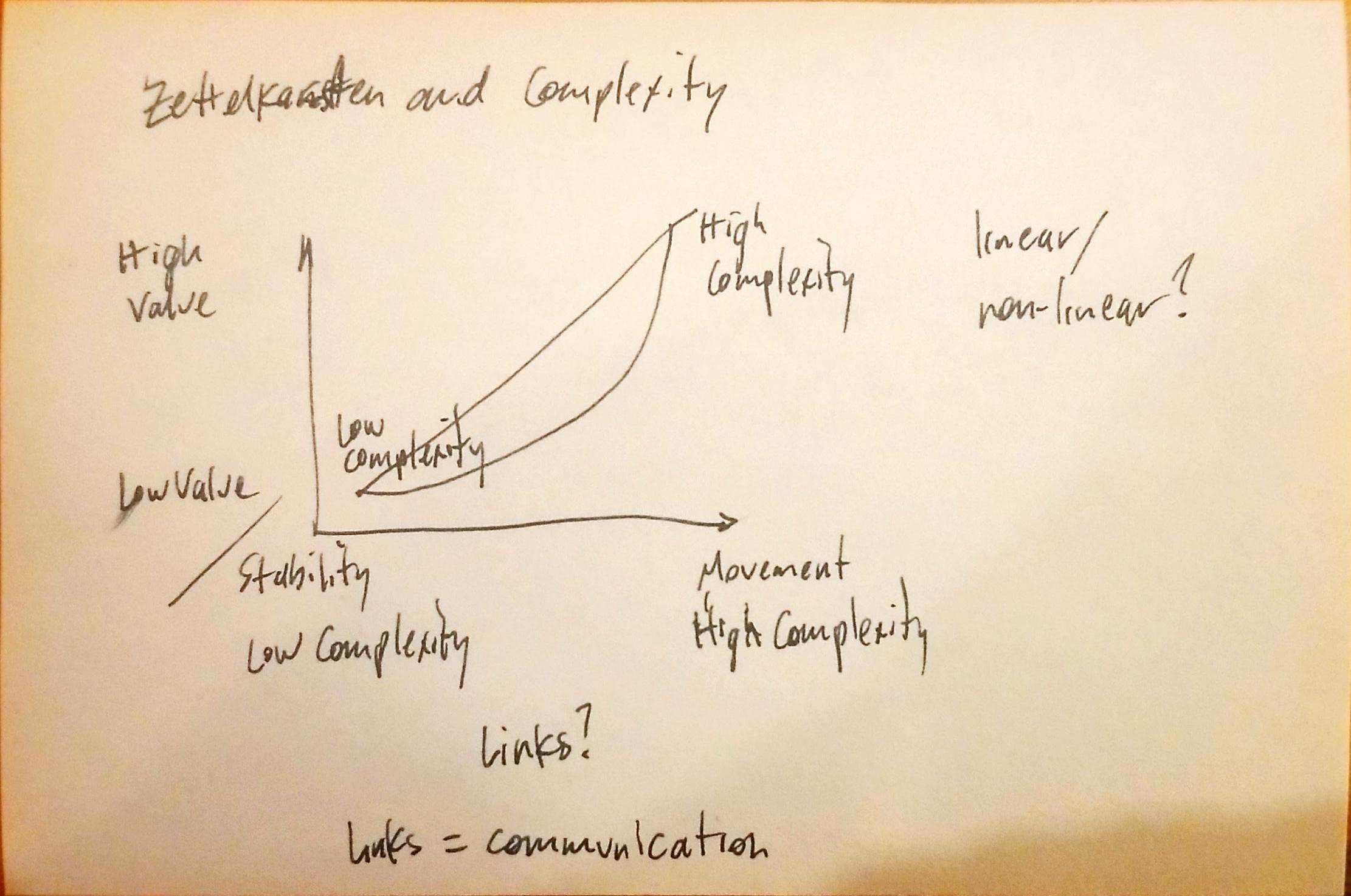Modern digital zettelkasten don't force the same sort of digital internal branching process that is described by Niklas Luhmann. Internal branching in these contexts is wholly reliant on the user to create it.
Many digital systems will create a concrete identifier to fix the idea within the system, but this runs the risk of ending up with a useless scrap heap.
Some modern systems provide the ability for one to add taxonomies like subject headings in a commonplace book tradition, which adds some level of linking. But if we take the fact that well interlinked cards are the most valuable in such a system then creating several links upfront may be a bit more work, but it provides more value in the long run.
Upfront links also don't require quite as much work at the card's initial creation as the creator already has the broader context of the idea. Creating links at a future date requires the reloading into their working memory of the card's idea and broader context.
Of course there may also be side benefits (including to memory) brought by the spaced repetition of the card's ideas as well as potential new contexts gained in the interim which may help add previously unconsidered links.
It can certainly be possible that at some level of linking, there is a law of diminishing returns the decreases the value of a card and its idea.
One of the benefits of physical card systems like Luhmann's is that the user is forced to add the card somewhere, thus making the first link of the idea into the system. Luhmann's system in particular creates a parent/sibling relation to other cards or starts a brand new branch.
